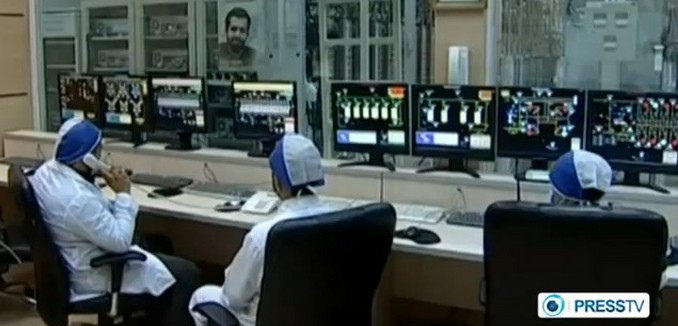Taking into account the global nonproliferation regime, the effect of sanctions on Iran, and the internal political situations in Iran, the New York Times evaluates the prospects for a breakthrough in today’s P5+1 talks in Kazakhstan and deems them… not great:
When Iran’s nuclear negotiating team sits down with its Western counterparts in Almaty, Kazakhstan, on Tuesday, it will offer no new plans or suggestions, people familiar with the views of the Iranian leadership say. More likely, they say, the Iranian negotiators will sit with arms crossed, demanding a Western change of heart.
Iran’s leaders believe that the effects of Western sanctions have been manageable, and Iran continues to make progress on what it says is a peaceful nuclear energy program. And Iran’s leaders see that North Korea, which openly admits that it wants nuclear weapons, has performed three nuclear tests without suffering any real penalties.
The West is expected to present Tehran with an upgraded offer, including sanctions relief on gold trading, on small-scale banking, and on Iran’s petroleum industry. Secretary of State John Kerry is calling on the Iranians to take the deal, but his request comes in an atmosphere of frustration, as international officials have become increasingly vocal in accusing Iran of using negotiations to stall for time. Those accusations have recently come from EU officials:
Iran is stalling on fixing a date and location for a new round of talks on its nuclear program, the European Union’s foreign policy chief said on Wednesday… “We proposed concrete dates and a venue in December,” said a spokesman for Catherine Ashton… “Since then, we have been very surprised to see Iran come back to us again and again with new pre-conditions on the modalities of the talks, for example by changing the venue and delaying their responses,” spokesman Michael Mann said.
And US officials:
American officials have interpreted the Iranian delay in scheduling talks to date as a potentially inauspicious sign of continued dysfunction or indecisiveness in Tehran, diplomatic sources tell the Back Channel. American negotiators “are ready, if Iran says yes, to work through with them a step by step deal,” a Washington non-proliferation expert told the Back Channel Tuesday. “They want to be able to make a deal. And a major concern is whether Iran is capable of making a deal, whether the Supreme Leader is capable of even deciding that he wants to make a deal. That is where their concern is.”
And UN officials:
The United Nations must be decisive and swift in judging whether diplomacy can resolve world concerns about Iran’s nuclear program, U.N. Secretary General Ban Ki-moon said Thursday, or invite the risk that Iran, like North Korea, will use talks as a cover to build a bomb… “We should not give much more time to the Iranians, and we should not waste time,” Ban said. “We have seen what happened with the DPRK.”
The E.U. and the U.N. are, at least publicly, keeping up the pressure on Tehran. Ban Ki-Moon disclosed earlier this month that when he visited Tehran last year, he told Iranian leaders that he viewed their assurances that their nuclear program is peaceful with skepticism. The E.U. issued a statement yesterday stressing that the onus for progress on Iran is on Iran. Even the Russians, who have been critical to Iran’s nuclear progress, are declaring that there is “no more time to waste.”
For their part the Iranians issued a statement declaring that “Iran’s nuclear train” will “never stop.” It follows a statement by Alaeddin Boroujerdi, the head of parliament’s national security and foreign policy committee, to the effect that Iran will “never shut down” its underground enrichment bunker at Fordow.
[Photo: LifeNewsful / YouTube]




